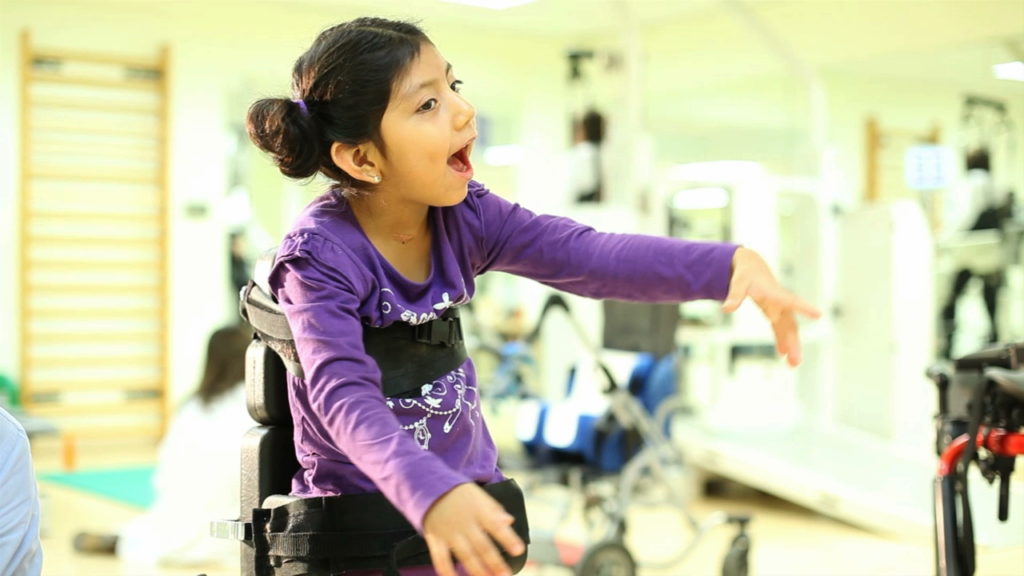
More motivation = Better outcomes?
Can motivation have a positive effect on rehabilitation outcomes? In this first of several posts, we will see if it’s important for patients to be motivated during rehabilitation sessions.
Of course, many of the rehabilitation professionals who use Rehametrics with their patients do so because they recognize that motivation is a determining factor in achieving better outcomes. And, on top of that, they have seen first-hand how their patients don’t actively participate during sessions or even stop coming to therapy, which will have a negative effect on rehabilitation outcomes. Unfortunately, this problem is more common than we think. In fact, some studies completed in the United States estimate that up to 73% of patients who had physical therapy sessions scheduled, missed at least one of them during their treatment (Bhavsar et al).
Similarly, several rehabilitation centers recognize this problem and have started to use video games such as the Wii or the Xbox in their therapy sessions. The idea is to take advantage of the motivational effect that video games have in individuals and use it for the benefit of rehabilitation. However, the problem, in this case, is that the commercial games available are designed to play and not to rehabilitate. Using them for rehabilitation purposes can lead to over-stimulation of patients and making it very difficult to adapt the difficulty of the session to a clinical objective or to a patient’s capabilities.
It is for this reason that, for some years now, rehabilitation equipment manufacturers have incorporated gamification techniques in their devices. As many of you already know, gamification is the implementation of game techniques with the aim of having a direct impact on motivation or achieving a change in the behavior of the target audience. Thus, from rehabilitation robotics to functional electrical stimulation dedvices, more and more manufacturers are incorporating gamification in their equipment. It is precisely for this reason that, at Rehametrics, we prioritize the use of gamification in the our more than 320 rehabilitation exercises. But, is there evidence that gamification really has a positive effect on patient motivation? And, if so, is it also capable of achieving better clinical outcomes?
Well, let’s start with the first question: what evidence is there that gamification really has a positive effect on patient motivation? Although the vast majority of professionals who use Rehametrics tell us that they see a clear improvement on patient motivation when using our exercises, let’s see if there is more evidence in this regard. Looking for more information on this topic, we found two very interesting studies. One shows the effect of gamification on patient participation and the other shows the effect of gamification on adherence. The first one, a study by Ouyang et al, assesses the application of gamification to increase the use of health-related online forums. This study found that when gamification was applied, patients participated more in these forums (measured by number of comments, posts, etc.) and missed fewer medical appointments.
Similarly, a systematic analysis by De Croon et al found that the use of gamification also has a positive effect on adherence. But not only in healthcare settings. Their analysis found that this effect can be seen in up to 27 different disciplines. Therefore, we see that there is evidence to support the idea that gamification has a positive effect on patient participation and adherence.
On the other hand, if we agree that gamification will have this effect on rehabilitation, we can also assume that patients who participate more actively during rehabilitation sessions and who also have a better adherence to treatment, will obtain better rehabilitation outcomes. It is for this reason that, at Rehametrics, we are certain that motivation is probably one of the most determining factors in achieving better clinical outcomes. Unfortunately, it is also one of the most overlooked factors by rehabilitation professionals.
In future posts, we will see which gamification techniques are currently implemented in Rehametrics and how they improve engagement and a achieve a greater adherence to a rehabilitation treatment.


